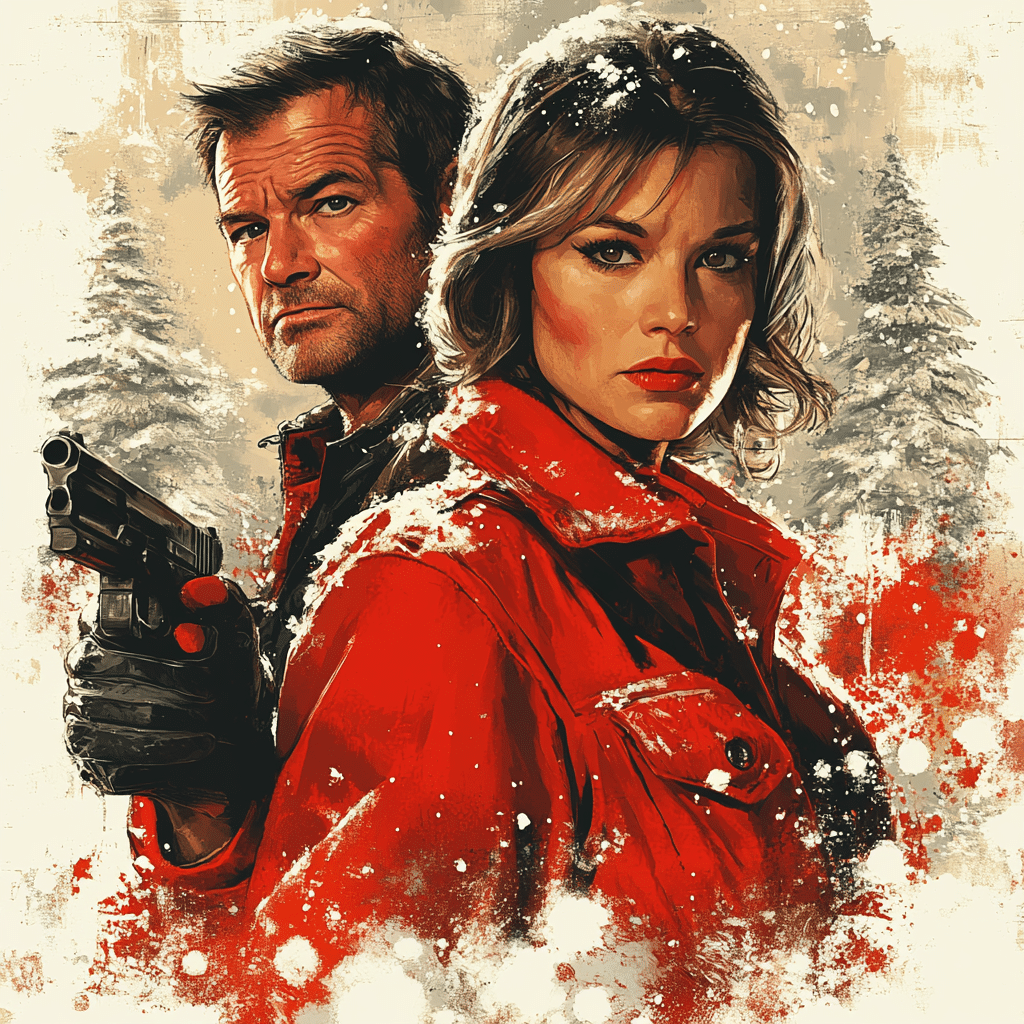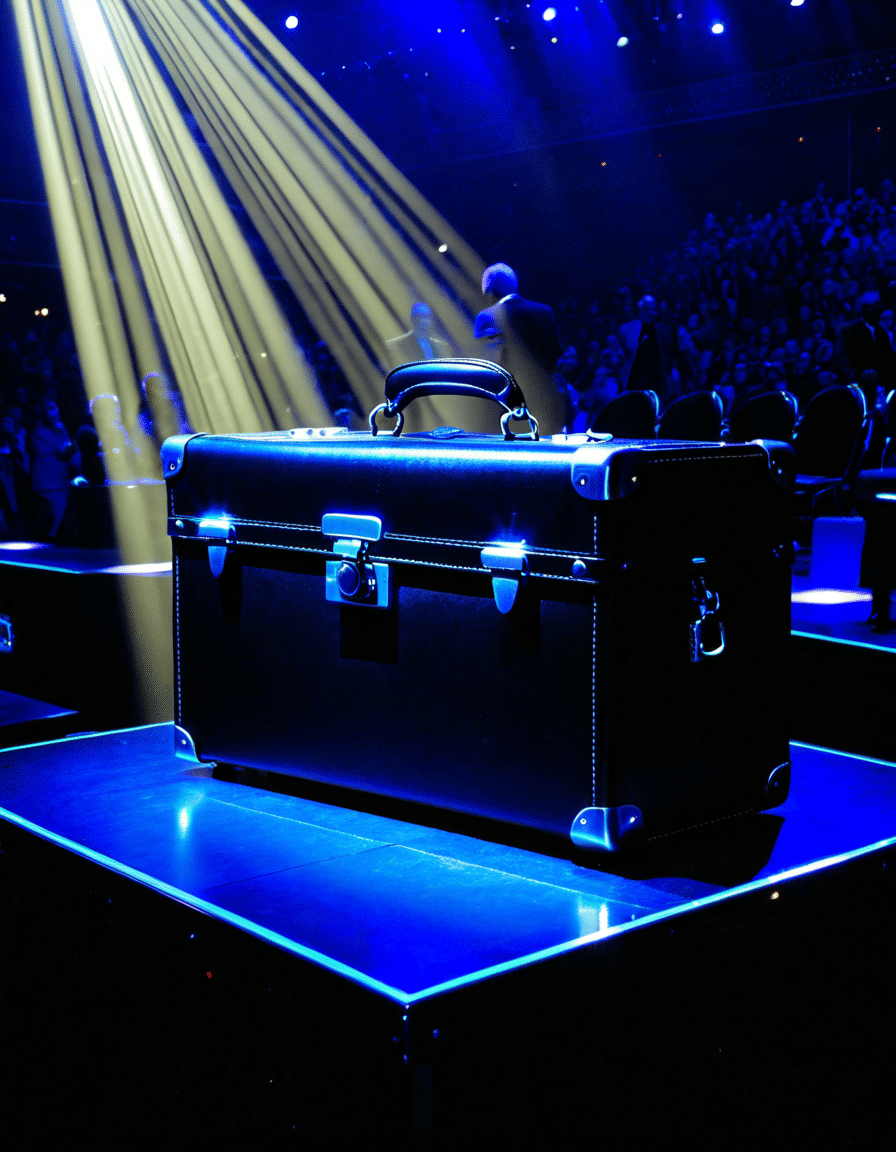
The Allure of Deal or No Deal in Game Shows
Since its debut in the early 2000s, Deal or No Deal has snagged viewers with its intoxicating mix of suspense and strategy. At its core, the game is deceptively simple: contestants choose from sealed cases, each holding a potential cash prize, while negotiating with a mysterious banker for offers that could either make or break their dreams. The real magic lies in the emotional rollercoaster that unfolds. Contestants find themselves in high-stakes situations, weighing their ambitions against the fear of loss. This psychological tug-of-war transforms a straightforward game into a riveting spectacle, compelling audiences to watch as each decision hangs in the balance.
What makes Deal or No Deal particularly captivating is the way it taps into human vulnerability. Who hasn’t experienced that pulse-pounding moment when faced with a big decision? The show’s format stirs our innate desires for monetary gain while simultaneously showcasing the psychological pressure contestants feel. Behind the glitz and glamor, it’s as much about mental gymnastics as it is about luck. The tension mounts with every case opened, leading to electrifying moments that have become iconic in the world of television.
As fans of cinema know, suspense is a powerful tool. Similarly, Deal or No Deal uses production techniques—like dramatic music and close-up shots of contestants’ faces—to amplify the emotional stakes. Moments like a contestant’s ecstatic joy or devastating heartbreak resonate deeply with viewers, echoing the all-too-relatable plots found in blockbuster hits or cult classics. Just ask any movie nerd about their favorite scene from an edge-of-your-seat thriller—it’s all about the buildup!

Top 7 Game Show Formats That Embody Risk and Reward
As a cornerstone of game show history, Deal or No Deal exemplifies the thrill of risk versus reward. Contestants bet their future against the psychological warfare they wage in their minds. The simple choice—to deal with the bank or risk it all for the chance of a bigger payout—is the crux of what makes this show a cultural phenomenon.
This party favorite has morphed into various game show formats, thrusting players into precarious situations. Contestants balance risk and vulnerability, making choices that echo the high-stakes emotional gameplay of Deal or No Deal. The show’s transitions make you ponder what you would dare to risk for glory—whether in a game show or a thrilling movie like Twilight 3.
With rapid-fire challenges, Knockout engages contestants in a race against each other. Just as in Deal or No Deal, they must make critical choices under pressure. The stakes of this competition, though different in nature, mirror the electrifying risk-reward dynamic that keeps viewers on the edge of their seats.
Although physically demanding, the tension in Wipeout resonates with the emotional stakes of Deal or No Deal. Contestants navigate outrageous obstacles, all for a shot at cash prizes. This game offers thrills in a different format, where the risk involves physical prowess rather than strategic choices.
This quiz-oriented showdown pits contestants against a brilliant “Chaser.” Just like Deal or No Deal, players take calculated risks based on their confidence. The blend of mental acuity and financial stakes captivates audiences who love both trivia and tension.
Who doesn’t love a surprise ride that could lead to a cash windfall? In Cash Cab, unsuspecting taxi passengers face trivia questions for cash prizes, reminiscent of the surprise twists in Deal or No Deal. The blend of everyday settings with sudden stakes hooks viewers of every age.
Taking it up a notch, Deal or No Deal Island introduces various challenges that combine skill with luck. Contestants must think strategically while making decisions akin to those found in the classic show. As they face diverse tasks, they navigate their way through financial gambles, mirroring the thrilling essence of Deal or No Deal itself.
Psychology Behind High-Stakes Game Shows
The psychological elements driving Deal or No Deal are fascinating. Research has shown that human decision-making changes dramatically under pressure. Contestants experience a whirlwind of emotions: excitement giving way to anxiety can make for dramatic television and potent storytelling.
Fear of loss plays a significant role in decision-making. Contestants often find themselves in a tug-of-war between accepting a safe bank offer or gambling for a potentially greater payoff. This conflict mirrors the life-altering choices that characters face in films like Empire Of The Sun, creating a relatable narrative for the audience.
Moreover, the experiences of contestants reflect broader societal values. In the face of potential wealth, contestants grapple with their ambitions and fears, making decisions that resonate far beyond the game. Such insights link the drama of game shows to larger cinematic themes—whether it’s the thrill of chasing dreams or confronting harsh realities, the stakes are both thrilling and relatable.
The Role of Production and Audience Engagement
Game show producers wield considerable influence over how tension unfolds during episodes. Techniques like well-timed music cues and strategic camera angles craft a narrative that grips the audience’s attention. Think of how the right sound can elevate the suspense in a horror film or a dramatic thriller—the same principles apply here!
Deal or No Deal expertly utilizes these techniques to heighten emotions. For instance, when the camera lingers on a contestant’s face during crucial moments, it builds anticipation similar to a climactic movie scene. This clever manipulation turns simple decision-making into a gripping narrative arc.
Modern audience engagement also reshapes how game shows operate. With the rise of social media and live voting, viewers feel more involved. They aren’t just passive observers; they engage in the thrill, akin to fans discussing plot twists in popular shows like Sewing Down South. This dynamic fosters a communal excitement that makes watching game shows feel like a shared experience.
Future Trends: Where Game Shows Are Heading
Looking ahead, the world of game shows is set to undergo some serious transformations. As technology advances, shows like Deal or No Deal can evolve to incorporate augmented reality, adding layers of interaction that change the viewing experience entirely. Imagine being able to influence game outcomes in real-time while cheering for contestants!
Interactive viewing experiences may allow audiences to make choices alongside contestants, effectively merging gameplay and home-viewing. Who wouldn’t want to play “banker” from their couch? This convergence could make watching shows not just an entertainment choice but an engaging, participatory experience.
Additionally, the increasing interest in diverse game formats bodes well for innovation. Future adaptations of Deal or No Deal Island and others may incorporate new spins on traditional formats, ensuring that the excitement of risk and reward continues to resonate with audiences.
Innovative Wrap-Up
When we think about the legacy of Deal or No Deal and its siblings, it’s clear that the heart of these shows beats for more than mere monetary rewards. They embody a thrilling dance of chance, strategy, and human emotion. As fresh formats emerge, and as game shows continue to adapt, the captivating essence of risk and reward will keep audiences entertained and invested.
Game shows aren’t just about contestants chasing cash; they explore the deeper elements of decision-making and emotional drama. Whether you’re contemplating high-stakes choices on the TV screen or at the cinema, these narratives resonate deeply, reminding us that life, much like a game, is filled with opportunities and risks.
So, as you curl up on the couch to rewatch Fifty Shades of Grey or catch Island Of The Dead episode 2, remember the thrilling emotions that define both cinema and game shows. The journey of choices continues to be a flavorful part of our cultural landscape, whether in the captivating world of film or the tantalizing realm of game shows.
Deal or No Deal: Thrills of Risk and Reward in Game Shows
The Game Show Phenomenon
“Deal or No Deal” catapulted to fame with its heart-pounding atmosphere and high-stakes decisions. Contestants face a nail-biting dilemma—taking the bank’s offer or risking it all for a shot at the big prize. This show isn’t just about luck; it dives deep into psychology, reflecting how people react under pressure. Interestingly, many fans draw parallels between the show’s drama and the intense relationships seen in flicks like Twilight 3 where tension is a key draw, keeping viewers on the edge of their seats.
Moreover, “Deal or No Deal” isn’t just about choosing bags; it’s about strategies. Contestants often find themselves second-guessing their instincts, much like the emotional rollercoaster depicted in films like Fifty Shades of Grey, which similarly challenges characters to maneuver through risky situations. And while the contestants face financial stakes, the allure of the game mirrors how fashion can evoke risk, just like sporting edgy trends like Versace blue Jeans can make or break a fashion statement.
Intriguing Facts and Insights
Over its run, “Deal or No Deal” has seen its share of memorable moments and quirky trivia. For instance, a contestant named Brooke Nevin once made headlines by playing brilliantly and walking away with a whopping $1 million! The thrill of such win-or-lose scenarios can evoke the same kind of excitement performed by iconic bands like The Beach boys whose infectious tunes brought joy to countless fans, sharing a universal love for high-energy entertainment.
And let’s not forget the controversies that have popped up surrounding the show. Just as R. Kelly’s earlier fame has been overshadowed by personal problems, some contestants on “Deal or No Deal” found themselves embroiled in social media scandals after their appearances. These twists only add more excitement to an already captivating game. In essence, “Deal or No Deal” exemplifies the delicate dance between risk and reward, a timeless tale that resonates with many aspects of entertainment.





